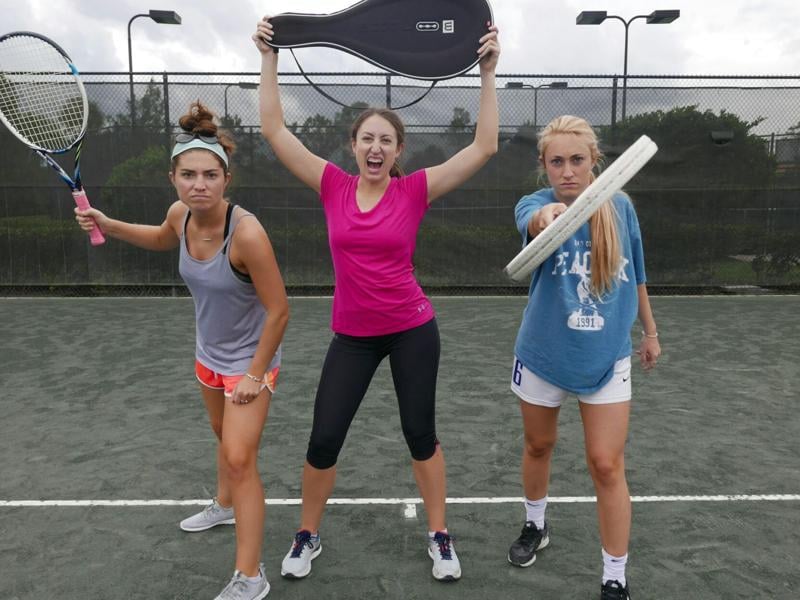The Independent Women’s Forum has relaunched a letter campaign, urging all NCAA female athletes to contact the NCAA Board of Governors, and encourage the board to keep women’s sports exclusive to biological females.
The marketing campaign comes days after NCAA President Charlie Baker’s U.S. Senate testimony.
Senate Judiciary Committee member Sen. Josh Hawley, R-Missouri, questioned Baker about the inclusion of transgender athletes in women’s sports.
“Did you say the federal government requires the NCAA to allow biological males to compete in women’s sports?” asked Hawley.
“No, I said there have been five [legal] cases against men in women’s sports in the last 18 months,” responded Baker.
“No federal law has ordered the NCAA to allow men in women’s sports, right?” pressed Hawley. “So, Mr. Baker, why are you allowing biological males to compete in women’s sports?”
Baker responded by saying the NCAA believes that it is consistent with federal policy based on court rulings.
Adriana McLamb, marketing director for IWF, told The Center Square in a Thursday interview that Baker wants to shirk his responsibility.
“President Baker wants to pass the buck to another entity to take the fall, trying to get the heat off the NCAA, but there’s nowhere else to hide,” McLamb said. “He blew it. He had the opportunity in that hearing, and I think he was unprepared and ended up wasting an opportunity to stand up for women.”
By relaunching the letter campaign, IWF hopes to influence upcoming NCAA meetings.
“We do see an opportunity as the NCAA convention is happening in Nashville Jan. 14th, and they have inclusion conversations and women’s sports conversations on their agenda,” McLamb added.
IWF was successful in getting the Ladies Pro Golf Association to implement new policies prohibiting males who have transitioned after puberty from participating in women’s events.
“We want to pressure them in the right direction like what we did with the LPGA, to keep women’s sports for females,” McLamb explained.
A letter coordinated by the LGBTQ group Athlete Ally urged the NCAA Board of Governors to allow transgender athletes to play on the team of their choice.
“To deny transgender athletes the fundamental right to be who they are, to access the sport they love, and to receive the proven mental and physical health benefits of sport goes against the very principles of the NCAA’s Constitution,” stated the letter signed by dozens of athletes, including former soccer star Megan Rapinoe, who played most of her professional career for the Seattle Reign, and former Seattle Storm basketball player Sue Bird.
As previously reported by The Center Square, Washington state’s Office of Superintendent of Public Instruction under Superintendent Chris Reykdal has embraced recent changes to Title IX to protect transgender students, or boys who identify as girls who wish to compete in girls’ sports.
OSPI’s Sex Equity in Athletics memo states, “Most interscholastic sports in Washington public schools are offered separately for boys and girls. This can pose a unique challenge for some transgender and nonbinary students, who may not identify as either male or female but who still want to participate in school sports.”
Meanwhile, a group of more than a dozen Washington school districts has proposed an amendment to the Washington Interscholastic Activities Association handbook that would limit participation in girls’ sports to students assigned female at birth.
A second proposed amendment states that programs would be offered separately for boys and girls and that there would be an open division for all students that trans students could participate in.
McLamb encouraged all female athletes to hang in there as the IWF continues to fight to protect women’s athletics.
“The cavalry is on the way, is what I would say, and we’re doing this for you and all the female athletes out there, so just keep up the fight, and if you’re uncomfortable, speak up because there are so many advocates who want to be your voice,” McLamb concluded.







